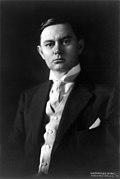| |||||||||||||||||
| |||||||||||||||||
| |||||||||||||||||
The 1920 Georgia gubernatorial election was held on November 2, 1920, in order to elect the Governor of Georgia. Democratic nominee and former United States Senator from Georgia Thomas W. Hardwick ran unopposed and subsequently won the election. [1] [2]


